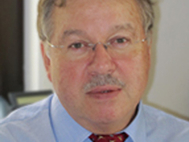
Applying bioacoustics for long-term monitoring of illegal cattle in protected areas
Passive acoustic monitoring coupled with automated signal recognition software has been widely used in recent years as an effective and affordable tool for wildlife monitoring and to combat illegal activities within protected areas. Here, we evaluate this technique to monitor the patterns of illegal cattle occurrence in the Brazilian Pantanal over a complete annual cycle. We aim to provide one of the first assessments of the performance of automated signal recognition software to detect ungulates. Cattle occurrences reached their maximum during the end of the dry season when lowland areas provide excellent pastures for cattle. In contrast, cattle occurrences were very low during the rainy season when the study area was seasonally inundated. Automated software was an efficient tool that was able to detect approximately three-quarters of cow calls within the recordings. Passive acoustic monitoring can be used to direct patrols to areas where illegal activities, such as cattle and poaching or logging, have been confirmed, which could be a method that would be especially well suited for remote areas, such as tropical forests. Future studies should evaluate whether there is a relationship between cattle grazing intensity and its associated impacts on wildlife and flora. Rapid advances in automated recognition and the recent development of low-cost recorders foresee a new era of acoustic ecology for improved conservation in the short term.






